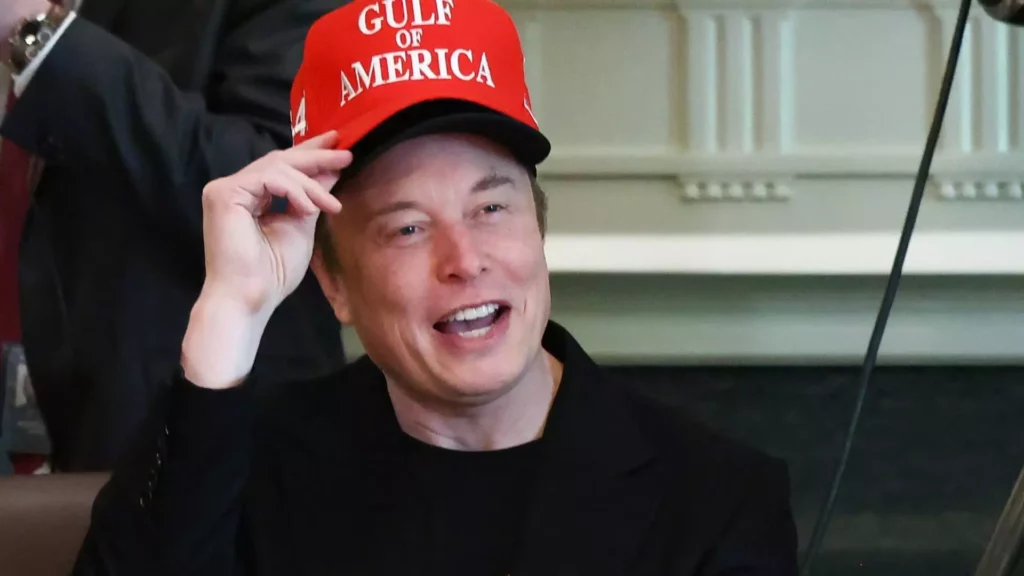When Elon Musk accepted his role as the head of the Department of Government Efficiency, it was framed as a bold experiment—a high-profile tech visionary thrust into the heart of bureaucratic operations. Initially celebrated by many as a move towards unorthodox leadership and innovative governance, Musk’s tenure lasted a fleeting 130 days, demonstrating how idealism can frequently collide with the sobering reality of politics. This brief yet impactful experience unearthed revelations that go beyond mere efficiency; they raise profound questions about the viability of injecting corporate strategies into the labyrinthine world of government.
Musk, recognized globally for his relentless pursuit of innovation through Tesla and SpaceX, stepped into government with the promise of tackling wasteful spending and streamlining operations. The notion that a business titan could wield the same transformative energy in a bureaucratic setting appeared alluring. Yet, his dual responsibilities tangentially hinted at underlying tensions. The lack of sustained engagement from someone like Musk invites skepticism regarding the effectiveness of appointing corporate leaders to public service. One can’t help but consider the conflict of interest when their primary commitment lies elsewhere.
The Constraints of Public Service
His idiosyncratic approach to governance raised eyebrows when he openly acknowledged the limitations imposed on his ability to devote time to this government role. By declaring that only two days a week would be dedicated to public office, Musk seemed to underscore a larger issue: can anyone, including elite performers, genuinely commit to governing while simultaneously presiding over a corporate empire? This pattern of selective engagement evokes deep concerns about serious governance versus performance theater—are we merely spectators in a carefully curated drama rather than engaged citizens seeking accountability?
Moreover, the friction between Musk’s ambitions and the political landscape sharply manifested itself during his criticisms of former President Trump’s spending bill. It provided a telling snapshot of a technocrat wrestling with fiscal policy in an environment rife with divergent ideologies. Musk’s assertion that new spending initiatives jeopardized his efficiency initiatives reflects a discord that resonates beyond his time in office. This scenario illustrates the fundamental tension: the expectations placed on visionary leaders differ dramatically from those required within an often slow-moving government bureaucracy.
Legal Troubles and the Pressure to Perform
Musk’s departure from the Department of Government Efficiency also plays into a broader narrative of compliance and governance. Emerging legal controversies—specifically allegations regarding breaches of federal law during his brief appointment—compound concerns about his suitability for dual roles. The intersection of business and public service should exemplify ethical leadership, yet Musk’s experience has triggered a much-needed dialogue about the pitfalls of such alignments.
As pressure mounts from pension fund leaders demanding stricter attendance policies for Musk at Tesla, the precarious balance he has attempted to maintain is laid bare. Stakeholders within the corporate realm fervently seek accountability, prompting critics to question whether Musk’s brief experiment in governance was an exercise in futility. Ultimately, the question looms: Can a successful business leader transform the mechanisms of public policy without sacrificing the very integrity of governance?
Illusions of Effectiveness
Musk’s brief tenure raises a provocative question: what lessons, if any, can be derived from the intersection of entrepreneurship and governance? The potential for revolutionary change seems tantalizing, yet history has shown that blending these realms often creates more illusions than effective policies. The short-lived inquiry into government efficiency, paired with Musk’s return to his corporate entities, paints a picture of a man who may have underestimated the arduous commitment required to instigate real change.
The allure of bringing Silicon Valley-style innovation to Washington is tempting; however, Musk’s saga serves as a stark reminder of the difficulties inherent in such pursuits. It underscores the vital importance of creating a robust framework that respects the distinct nature of public service. As authorities face pressure for transparency and discussions of efficiency continue, parameters must be established to ensure that the unique talents of business leaders don’t become mere props in the grand stage of governance.
In an era burdened with political polarization and insistent calls for efficiency, Musk’s flash-in-the-pan engagement is a cautionary tale—or perhaps a rallying cry—for future efforts aiming to bridge the chasm between entrepreneurial zeal and governmental prudence.









Leave a Reply